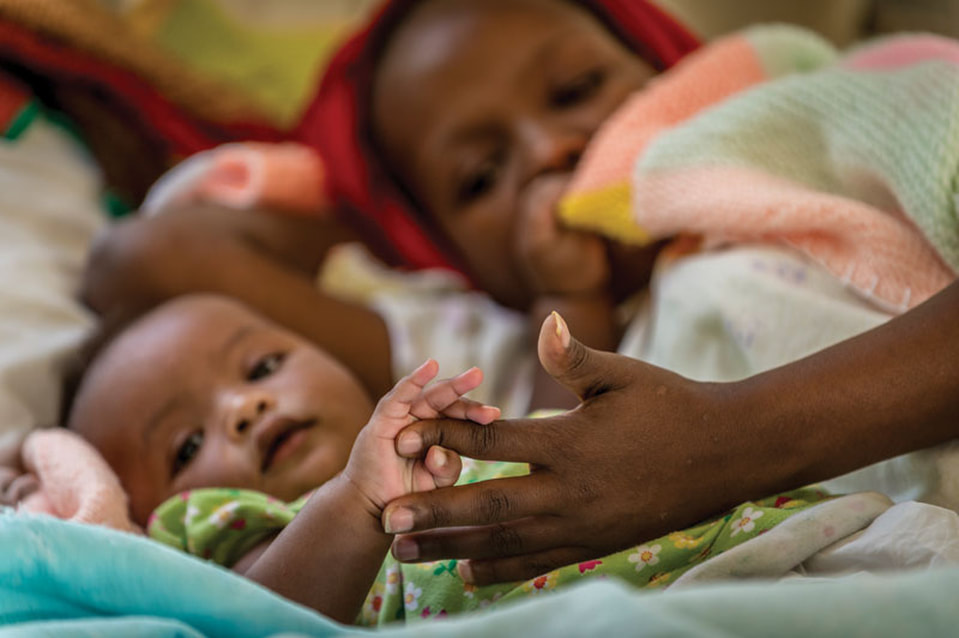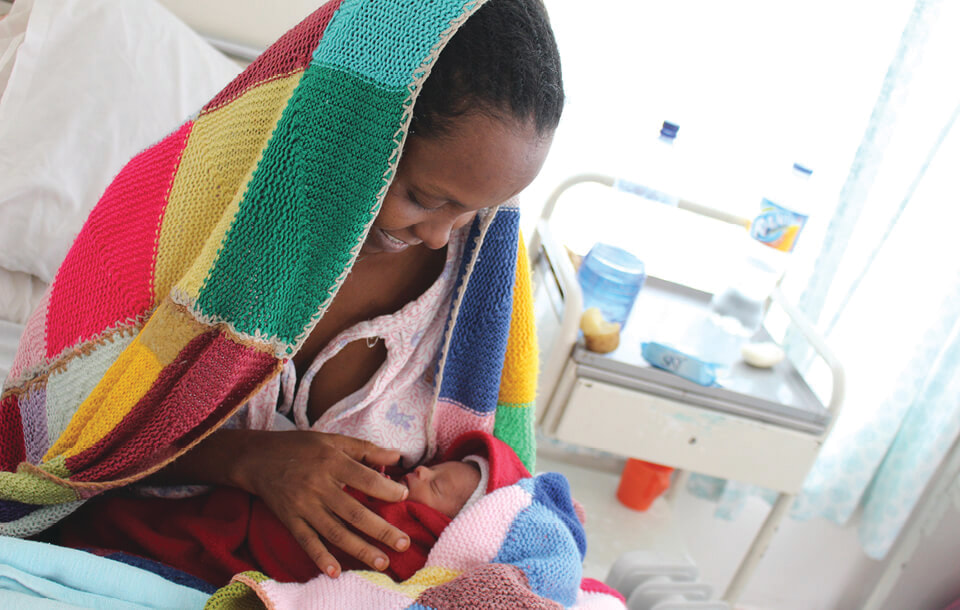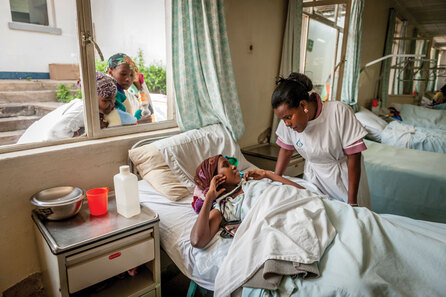
Toyiba’s childhood was a traditional one. She did not attend school, instead spending her days looking after her family’s cattle and sheep, collecting water from a distant water hole and collecting firewood. When she was not attending to these many chores, she was helping her mother at home.
On her 18th birthday, Toyiba was given to a man she had never met in an arranged marriage. Her husband spent his days cultivating a small plot of farm land, their only source of income, while Toyiba worked hard at home in much the same way she had during her childhood.
This is the way of life for all women in her village, so Toyiba never complained and lead a contented life. For the first three years of marriage, though, Toyiba didn’t conceive. This was a concern for the whole family. In traditional villages like hers, not producing children often results in divorce.
So, everyone was relieved and happy, especially Toyiba, when she fell pregnant at the age of 21.


Happiness turns to grief
Toyiba’s pregnancy went smoothly. There was a clinic close to her village, but Toyiba did not have any antenatal checks. As is custom, she spent the final three months of her pregnancy at her mother’s home in preparation for the birth of her baby.
The time of Toyiba’s labour arrived, but things did not go smoothly. After two and a half painful, exhausting days, Toyiba still had not delivered. Her mother, who had helped women deliver babies before, was at a loss regarding what to do.
As time passed, the family became more and more worried. They decided to take Toyiba to the closest clinic – a two-hour walk away. The health workers at the clinic could not help her, so they referred her to a government hospital. The doctors at the hospital were able to help Toyiba deliver naturally, but sadly her baby was stillborn.
On top of the trauma of losing her baby, Toyiba’s obstructed labour caused significant internal injuries, an obstetric fistula. She was left permanently incontinent of urine. Ashamed of her condition, she made the difficult decision to leave her husband.
“After I got back to my village with double grief of losing my baby and with such ashamed condition I never went back home. I decided to end my marriage life and stayed at my mother’s place.” – Toyiba
Hope
After a while, Toyiba decided to make the journey to the Addis Ababa Fistula Hospital for treatment. She had been told about Hamlin Fistula Ethiopia when she was at the government hospital.
Toyiba’s case was a difficult one and was not able to be repaired immediately. Toyiba spent one year receiving care at Hamlin, before finally having a successful operation to repair her fistula.
A happy future
This was six years ago. Toyiba spent another year living with her family to fully recover. She then accepted a marriage proposal from another man and felt like she was beginning her life anew.
Two years ago, Toyiba became pregnant again. At the recommendation of the Hamlin medical staff, Toyiba returned to the Addis Ababa Fistula Hospital for her final two months of pregnancy.
Thanks to generous donors around the world, past fistula patients can come back to any Hamlin hospital and received a clean, safe caesarean delivery free of charge. Toyiba gave birth, via caesarean section, to a healthy baby boy.
“I didn’t pay anything for all the services I received here. You cured me from the traumatic injury and now let me to be a mother, it was like a miracle, I never thought of being able to give birth after the injury but now here I am with my little baby thanks to you.”
– Toyiba

